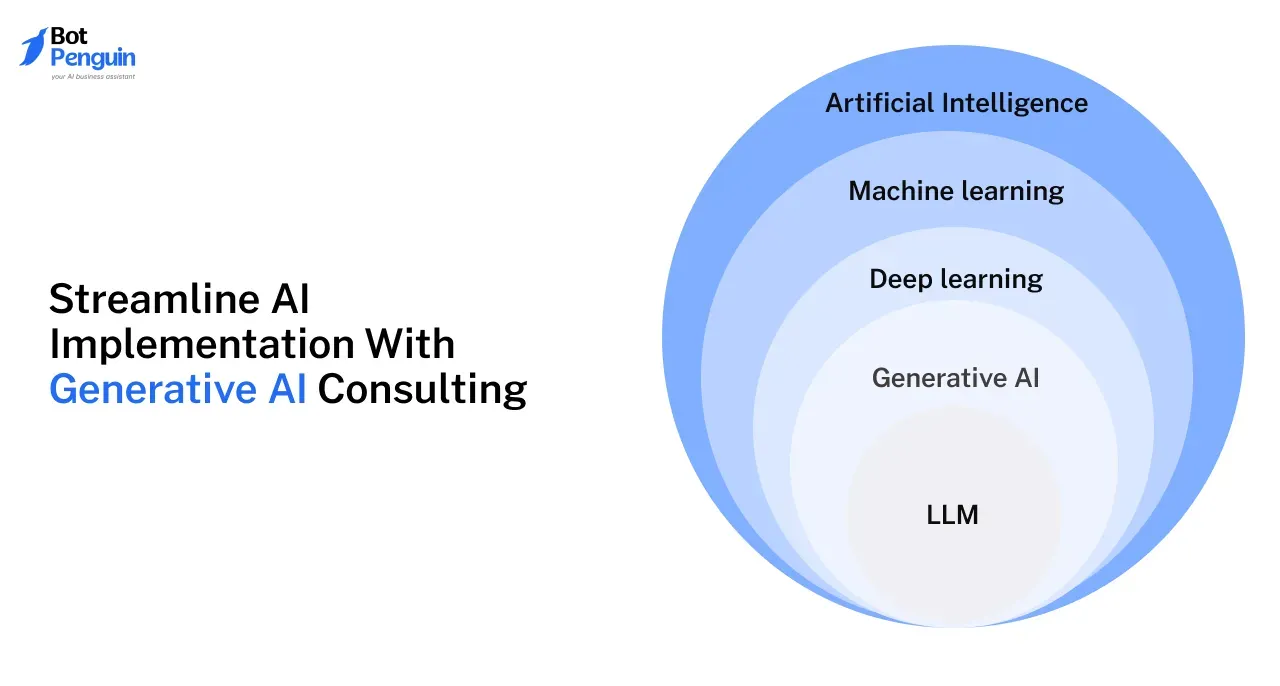Introduction
Forget everything you think you know about AI implementation. It's slow, expensive, and often ends up collecting dust in the corner.
Why? Because the data you need is scarce, the talent pool is thin, and the whole process is a tangled mess.
However, there's a transformative solution that might have been overlooked yet possesses the potential to drastically reduce expenses, speed up development, and fully realize the capabilities of artificial intelligence.
This solution is Generative AI consulting. Often underappreciated, Generative AI consulting emerges as a critical asset, offering innovative strategies and insights that can propel businesses forward, making it the game-changer that could redefine your approach to AI implementation.
What is Generative AI Consulting?
Generative AI consulting is a specialized service that assists businesses in integrating generative artificial intelligence technologies into their operations.

This type of consulting focuses on using AI models that can generate text, images, code, and other data forms, rather than just analyzing existing data.
Generative AI consulting services are tailored to help organizations innovate and solve problems highly efficiently.
The core of generative AI consulting services lies in its ability to provide strategic insights and technical expertise. Consultants evaluate a company's specific needs and challenges, propose AI-driven solutions, and help implement these technologies effectively.
The services can range from developing personalized AI models, integrating AI into existing workflows, to training internal teams on AI maintenance and scalability.
Benefits of Opting for Generative AI Consultancy for Your AI Projects
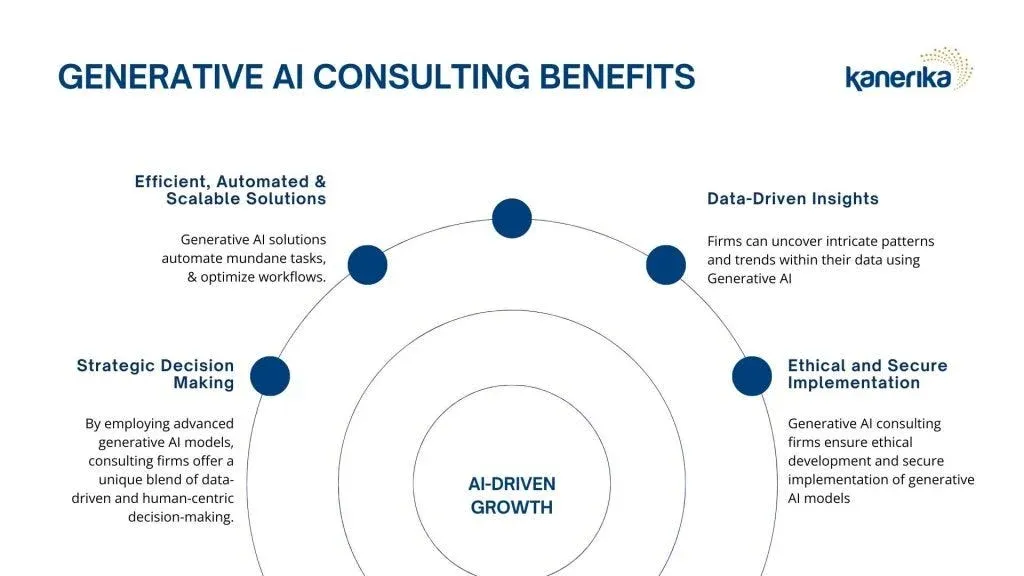
Engaging a Generative AI Consultancy offers a suite of advantages that extend beyond just technological upgrades. Here’s how these services can positively impact your business:
Strategic AI Integration
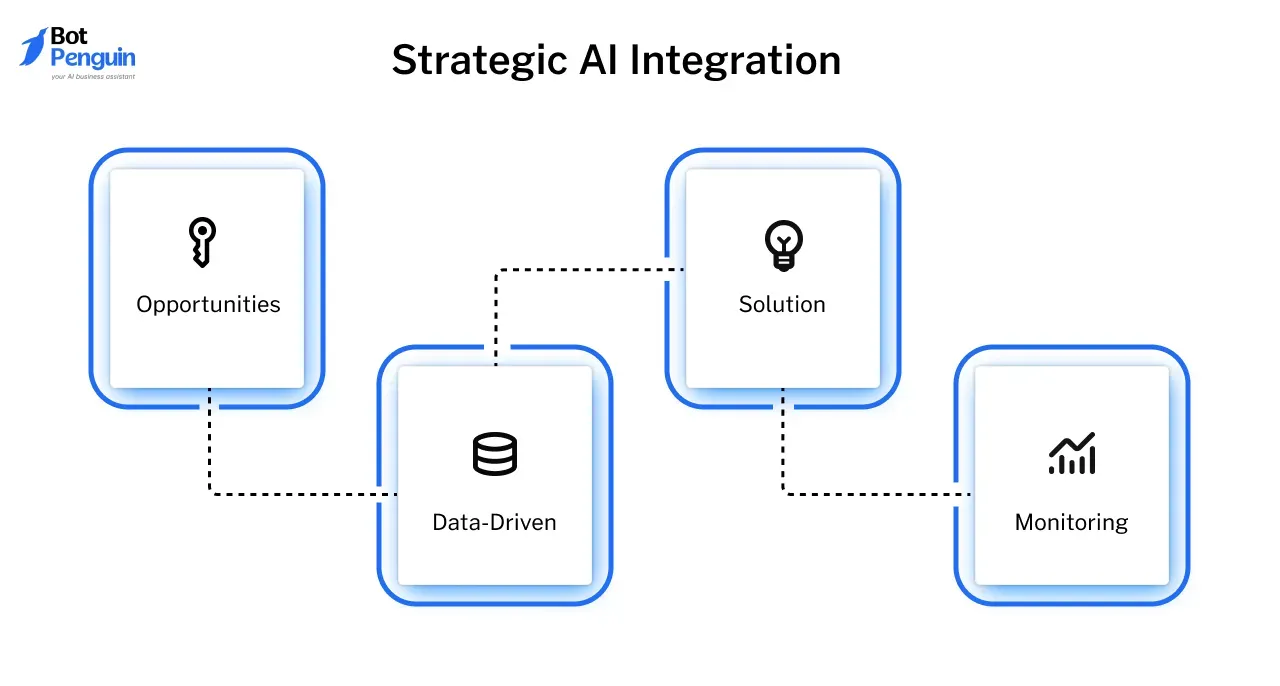
Generative AI consulting services provide more than just technical support; they help in aligning AI capabilities with business strategies.
This integration ensures that AI initiatives support broader business goals, such as increasing efficiency, improving customer service, or innovating product offerings.
The consultancy's strategic oversight helps ensure that every AI initiative has a clear purpose and measurable objectives, maximizing the return on investment.
Accelerated Innovation
Innovation is the lifeblood of competitive advantage, and generative AI services are pivotal in fostering an environment of rapid innovation.
By automating the design, development, and testing phases, these services can significantly speed up the ideation and execution processes.
This rapid prototyping allows businesses to iterate and evolve ideas quickly, staying ahead of market trends and competitor moves.
Enhanced Data Utilization

Data is a crucial asset for any business, but unlocking its full potential can be challenging.
Generative AI consulting services for businesses specialize in advanced data analysis techniques and the creation of synthetic data sets.
This capability allows for extensive testing and refinement of AI models without compromising data privacy or security. Enhanced data utilization leads to more accurate insights and predictions, which can drive decision-making across all levels of the organization.
Scalability and Flexibility
As businesses grow, their AI solutions need to scale accordingly. Generative AI consulting helps companies build AI frameworks that are both scalable and flexible.
This ensures that your AI solutions can adapt and grow as your business expands without requiring complete overhauls. Such scalability saves time and resources and maintains continuity and efficiency across business operations.
Risk Mitigation
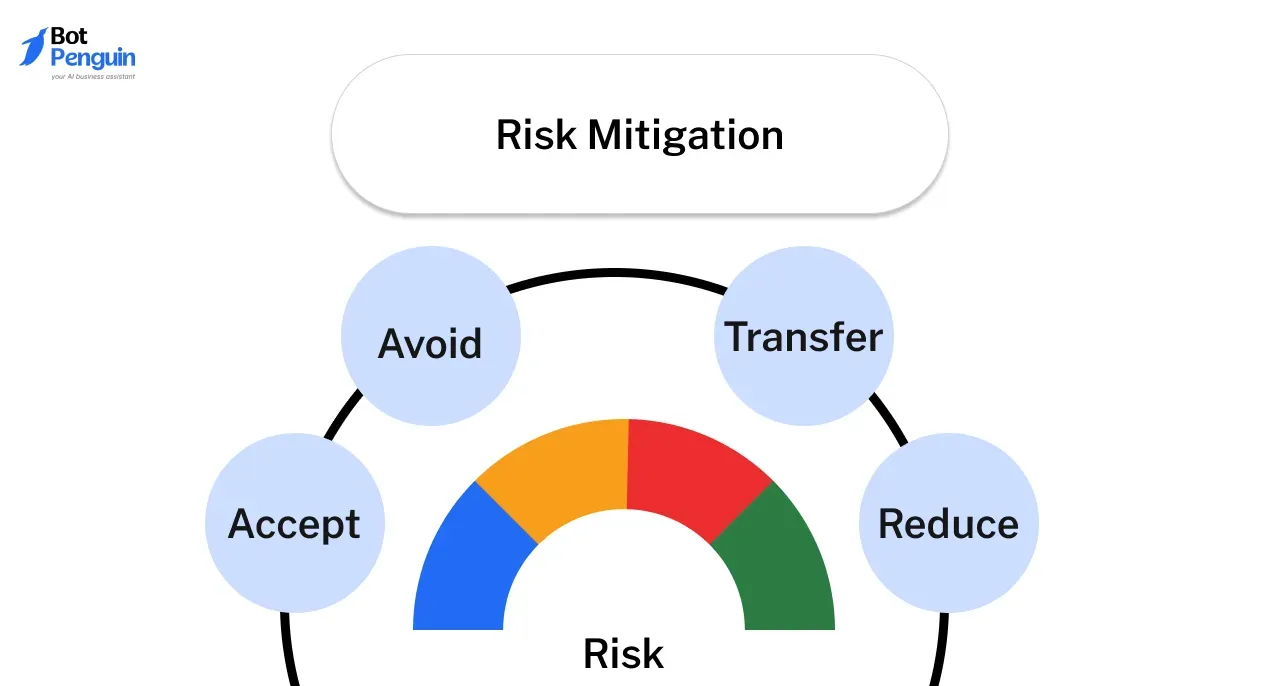
Implementing AI comes with its set of risks, including issues related to data security, compliance, and operational dependencies.
Generative AI Consultancy firms are equipped to identify and mitigate these risks proactively.
They ensure that AI implementations comply with all relevant laws and regulations, and they implement security best practices to protect sensitive data. This risk management is crucial for maintaining the integrity and reliability of business operations.
Access to Expertise
One of the primary benefits of partnering with a generative AI consultancy is the access it provides to specialized expertise.
These consultancies bring together professionals with years of experience and deep knowledge of AI technology and industry-specific challenges.
This expertise allows for the development of customized solutions precisely tailored to meet your business's unique needs.
Cost Efficiency
Finally, generative AI consulting services can lead to significant cost savings.
By automating routine tasks and optimizing various business processes, these services reduce the need for manual intervention, which can lower labor costs and enhance operational efficiencies.
Moreover, the strategic deployment of AI can prevent costly mistakes and ensure that projects are completed on time and within budget.
How Generative AI is Used in AI Projects?
Generative AI has revolutionized the landscape of modern projects, transforming from a cutting-edge technology into an indispensable tool that powers everything from content creation to complex problem-solving in real-time applications.
By leveraging advanced algorithms and machine learning capabilities, generative AI enables businesses to automate sophisticated tasks, create personalized experiences, and unlock new levels of efficiency across diverse project workflows, fundamentally changing how we approach innovation and solution development.
Data Generation
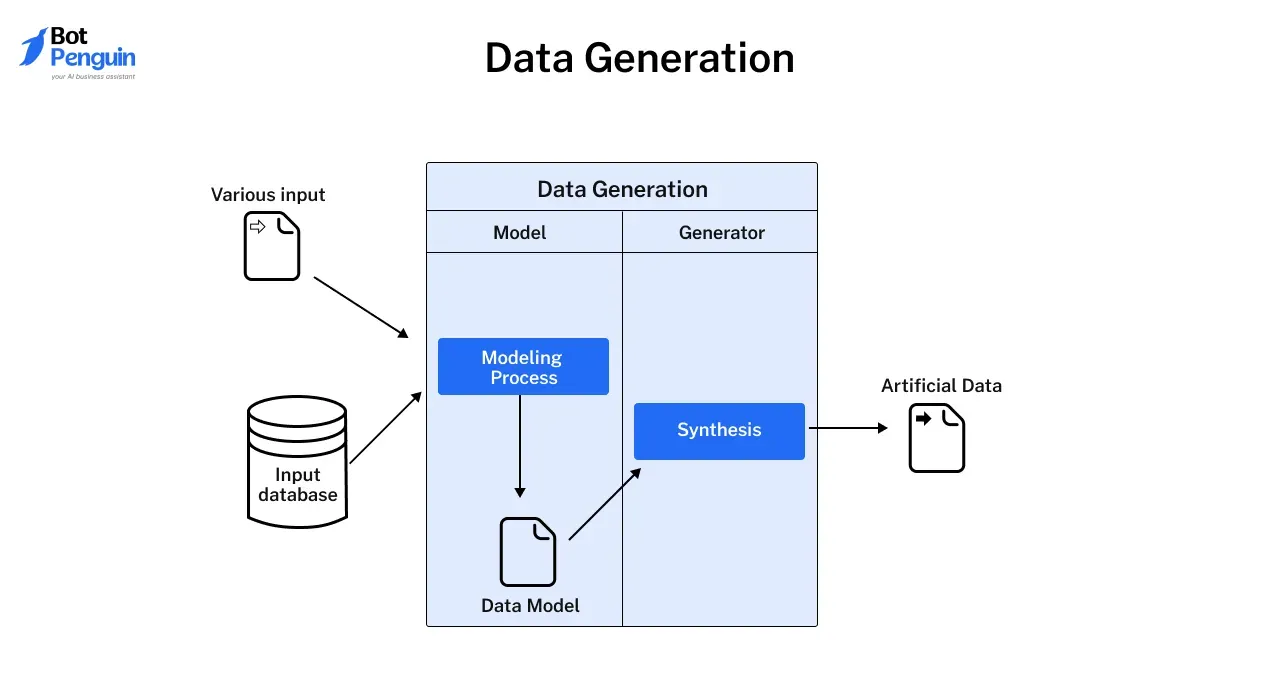
One of the main hurdles in AI implementation is the scarcity of high-quality, relevant data. Generative AI services tackle this issue head-on by providing tools to create synthetic data that mimics real-world data.
This capability is invaluable for companies in niche markets or those facing privacy concerns with sensitive information.
By generating vast amounts of synthetic data, businesses can train robust AI models without the constraints of data shortages or privacy issues, significantly accelerating R&D and product development cycles.
Code Creation
Another significant challenge is the need for custom software development, which can be resource-intensive and slow.
Generative AI consulting services for businesses include automating coding processes, where AI tools are designed to write and test code.
This speeds up the development process and reduces the likelihood of human error. It allows companies to focus on strategic tasks while generative AI systems handle the repetitive and complex coding tasks.
Suggested Reading:
Generative AI Consultation: 10 Compelling Business Use Cases
Automation
Generative AI Consultancy also plays a crucial role in automating various business processes, from content creation to customer service.
For example, AI can automatically generate reports, create realistic simulations, or manage customer inquiries through intelligent chatbots.
This level of automation streamlines operations, reduces labor costs, and enhances service delivery, making businesses more agile and competitive.
Through generative AI consulting, companies overcome common barriers like data scarcity and complex software development and gain a competitive edge through increased innovation and efficiency.
This consulting niche pushes technological boundaries and strategically aligns AI capabilities with business goals, ensuring that investments in AI translate into tangible benefits.
By demystifying the complexities of AI and offering hands-on solutions, generative AI consulting services become indispensable allies in the digital transformation journey.
The Generative AI Implementation Process
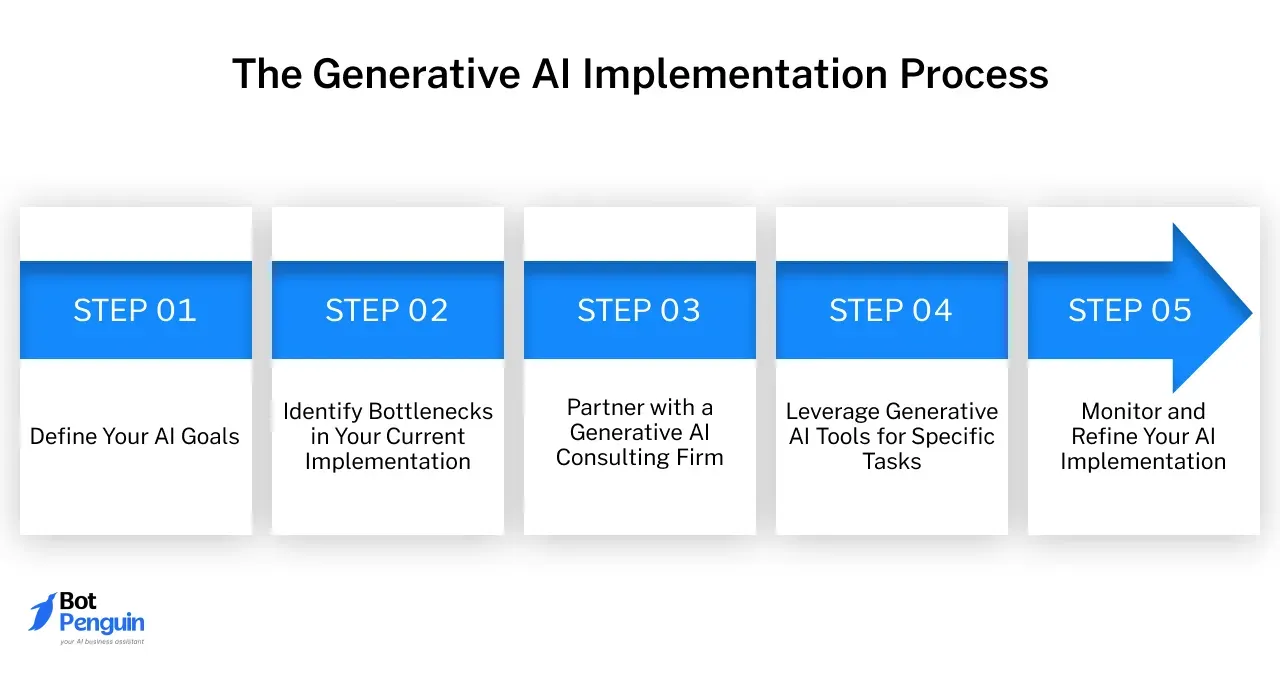
Implementing generative AI involves several critical steps that ensure your investment delivers the desired outcomes without unnecessary complexity or expenditure.
Step 1
Define Your AI Goals

The first step in deploying generative AI services is to define what you aim to achieve clearly. Understanding the specific problems you want to solve with AI is crucial.
Whether it’s enhancing customer experience, speeding up data processing, or generating new content, having clear objectives sets the foundation for a successful implementation.
Step 2
Identify Bottlenecks in Your Current Implementation
Before you can effectively implement new solutions, it is essential to identify existing bottlenecks in your processes.
These could be data limitations, lack of expertise, or outdated technology stacks. Pinpointing these challenges helps tailor generative AI consulting services to address these issues effectively.
Step 3
Partner with a Generative AI Consulting Firm
Choosing the right generative AI consultancy involves assessing potential partners based on their expertise, track record, and alignment with your business culture and goals.
The ideal partner should have proven experience in your industry and be adept at innovating solutions that integrate seamlessly with your existing systems.
Step 4
Leverage Generative AI Tools for Specific Tasks
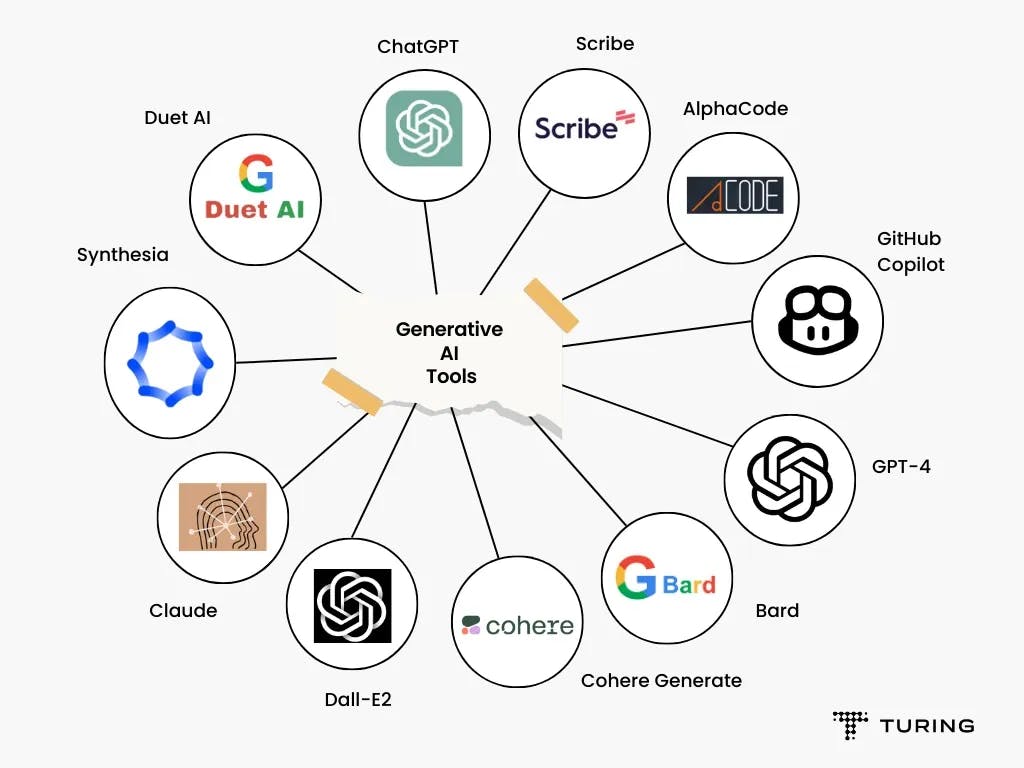
You can leverage generative AI tools tailored to your needs with the right consultancy partner. These tools can automate data generation, code creation, and other repetitive tasks.
Utilizing AI in this way streamlines operations and frees up your team to focus on more strategic activities, thereby increasing productivity and innovation.
Step 5
Monitor and Refine Your AI Implementation
The final step is continuous monitoring and refinement of your AI systems. This includes tracking performance against expected outcomes and making necessary adjustments.
Regular reviews with your generative AI consulting services for businesses will ensure that the AI implementation evolves in response to new challenges and opportunities, maintaining its effectiveness and relevance.
Through these steps, generative AI consulting facilitates a smooth transition from traditional processes to advanced AI-driven operations, ensuring that your business not only keeps up with technology trends but is also positioned to lead in innovation.
Generative AI Business Success Stories
Given below are notable implementation examples:
Spotify's AI Revolution

In 2015, Spotify launched its sophisticated AI recommendation system to solve the "paradox of choice" in music streaming.
The system analyzes user listening patterns, music characteristics, and behavioral data to create personalized playlists and suggestions.
Results:
- 365 million active monthly users
- 30% increase in user engagement
- Created the famous "Discover Weekly" playlist
- Revenue grew by 40% year-over-year
Netflix's Personalization Engine
-jpg.jpeg)
Netflix invested heavily in AI to combat subscription fatigue and content overload.
Their system analyzes viewing history, ratings, and even pausing patterns to predict what viewers might enjoy, down to personalized thumbnail images.
Results:
- Saves $1 billion annually in customer retention
- 80% of content watched comes from AI recommendations
- Reduced customer churn by 25%
- Personalization drove 75% of viewer activity
Suggested Reading:
Get Expert Generative AI Consulting With BotPenguin
Starbucks' Deep Brew Initiative
Launched in 2019, Deep Brew AI optimizes store operations by predicting daily customer traffic, inventory needs, and staffing requirements.
It considers factors like weather, local events, and historical patterns.
Results:
- 4% increase in same-store sales
- 30% reduction in inventory waste
- Labor optimization saving $50M annually
- Customer satisfaction improved by 15%
Sephora's Beauty Tech
The Virtual Artist tool uses facial recognition and AR to let customers virtually try on makeup products.
This bridged the gap between online shopping and the in-store experience, particularly crucial during the pandemic.
Results:
- 11% increase in conversion rates
- 45% increase in mobile app engagement
- Virtual try-ons increased by 200%
- Customer satisfaction score up by 35%
JPMorgan's COIN Innovation
COIN was implemented to tackle the time-consuming process of reviewing commercial loan agreements.
The AI system interprets commercial loan agreements with higher accuracy than human lawyers and in a fraction of the time.
Results:
- Reviews documents in seconds vs. 360,000 hours manually
- 99% reduction in loan-agreement review errors
- Saved 360,000 hours of lawyer time annually
- $100M estimated annual savings
Conclusion
Generative AI consulting is a crucial ally for businesses aiming to harness the power of AI.
By partnering with expert consultants, companies can navigate the complexities of AI implementation more smoothly, aligning technological advancements with strategic business goals.
The benefits of generative AI consulting services are comprehensive, ranging from accelerating innovation and optimizing data utilization to enhancing scalability and mitigating risks.
Embrace these services to streamline AI integration and transform operational capabilities, ensuring your business remains competitive and forward-thinking in a digitally driven world.
Frequently Asked Questions (FAQs)
What is generative AI consulting?
Generative AI consulting involves expert guidance on integrating AI models that can generate text, images, code, and more, tailored to enhance business processes and innovation.
Why should businesses consider generative AI consulting?
It provides strategic insights that leverage AI technology to boost efficiency, creativity, and competitive advantage in the marketplace.
Can generative AI consulting help in cost reduction?
Yes, it helps identify and automate routine and complex processes, reducing labor costs and operational expenses through efficient resource management.
What industries benefit most from generative AI consulting?
Industries like healthcare, finance, entertainment, and retail see significant benefits due to AI's ability to analyze large datasets and generate tailored outputs.
How do I choose the right generative AI consulting firm?
Look for firms with proven expertise in AI technology, a deep understanding of your industry, and a track record of successful AI implementations.
What challenges can be expected with generative AI implementation?
Challenges include data privacy concerns, integration complexities with existing systems, and the need for continuous training and updating of AI models.
